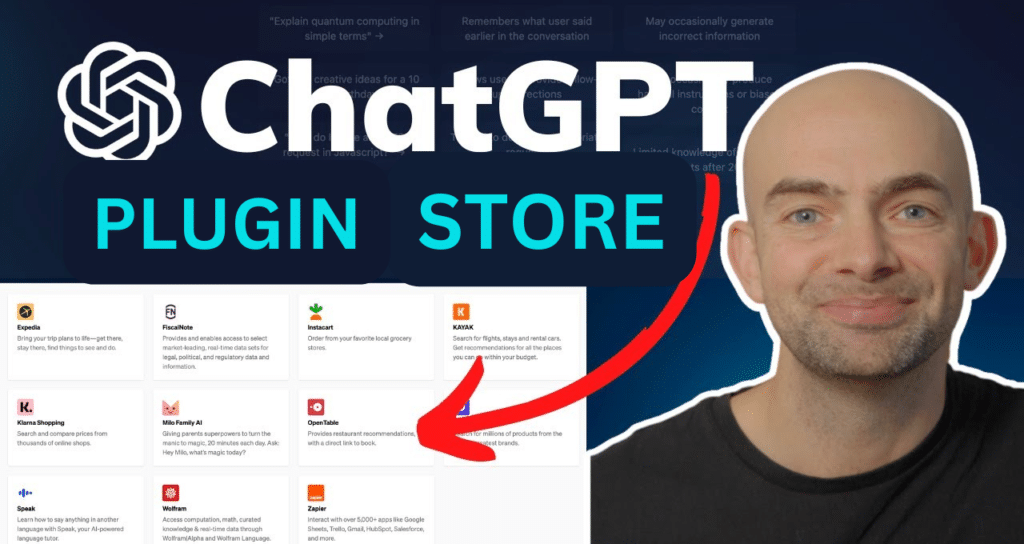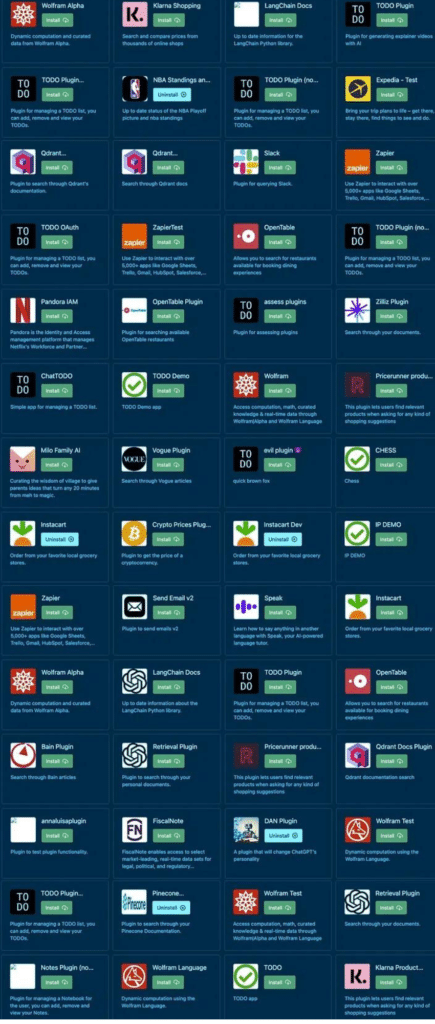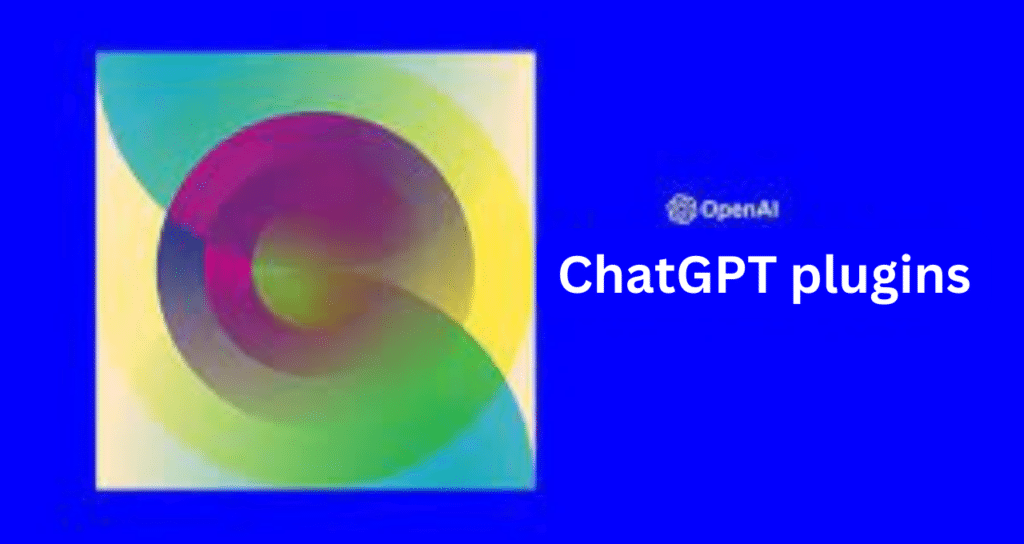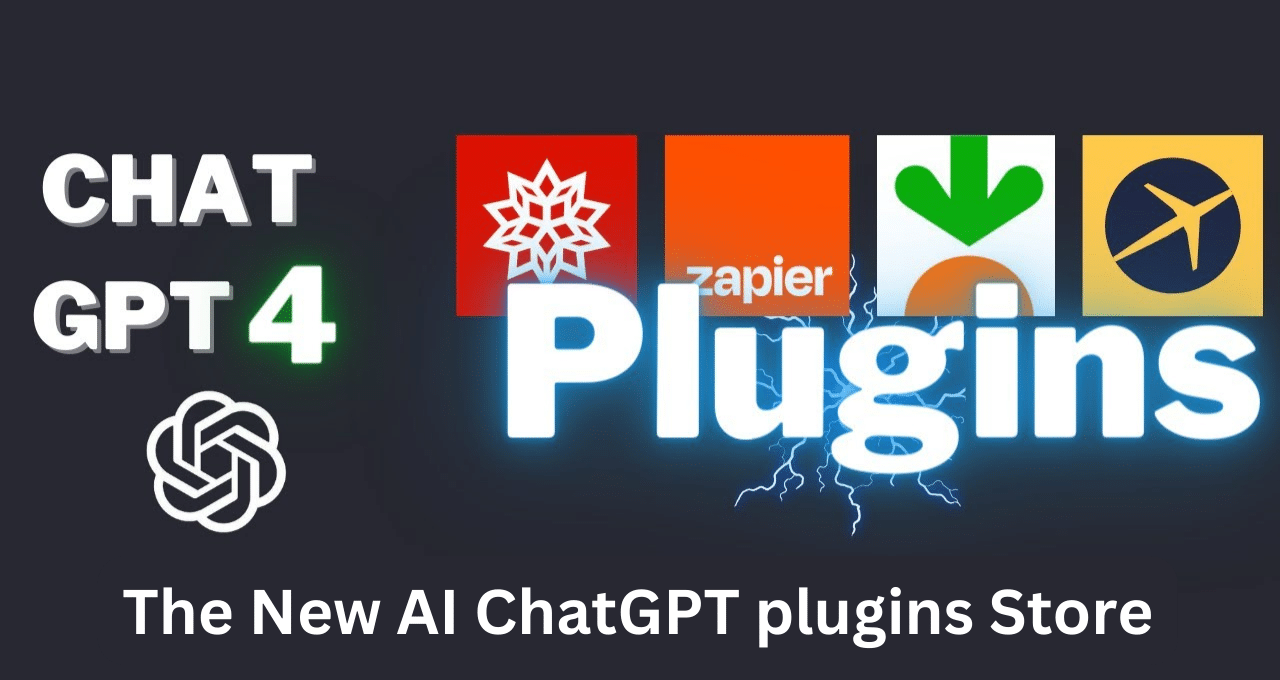Last Updated on August 14, 2023 by Manu Bhai
ChatGPT, an exceedingly powerful language model, has the capability to perform diverse tasks and can aid in addressing your queries. Nevertheless, to augment its functionality and efficaciousness, one can integrate plugins into the system. These ChatGPT plugins, deemed as tools or software components, introduce novel features and abilities into the language model. In this dissertation, an all-embracing discussion regarding ChatGPT plugins will be presented, encompassing their nature, operation, and their proficiency in enhancing one’s experience.
Plugins are essential tools that enhance the functionality of websites, allowing users to customize their experience. In this article, we will discuss the best ChatGPT plugins that can be used to improve the functionality of your website. Our aim is to provide you with detailed information on the plugins that can help you create a better website experience for your users.
What are ChatGPT Plugins?
ChatGPT plugins are software components that can be integrated with ChatGPT to enhance its functionality. They allow ChatGPT to perform specific tasks, such as translating text, searching for information, and processing payments. Plugins are essentially like add-ons that extend the capabilities of ChatGPT, making it more versatile and powerful.
A website’s functionality and user experience can be improved by integrating ChatGPT Plugins. These plugins were created by ChatGPT, an AI-powered language model, expressly to assist website owners in increasing their website’s performance and viewership. Plugins for ChatGPT include those for ChatBot, Translation, Search, Analytics, and Social Sharing.
These plugins are simple to set up and may be tailored to meet the unique requirements of a website. Website owners may improve the user experience for visitors, gather leads, boost conversion rates, and expand their website’s accessibility and social media presence by installing these plugins. Overall, ChatGPT plugins are an indispensable tool for every website owner who wants to increase the usability and effectiveness of their website.

How do ChatGPT Plugins work?
If you’re familiar with chatbots, you know how important they are in the world of artificial intelligence. They’re intelligent software programs that can simulate human conversations, helping businesses to automate their customer service operations, lead generation, and more. ChatGPT, on the other hand, takes this technology to a whole new level. It is a large language model trained by OpenAI that can generate human-like responses to text-based inputs. However, one of the features that make ChatGPT unique is its ability to integrate with other software programs through plugins. In this article, we’ll delve into how ChatGPT plugins work.
For example, ChatGPT can integrate with messaging platforms such as Facebook Messenger, Slack, or WhatsApp, through their APIs to enable users to chat with the model through these platforms.
Similarly, ChatGPT can integrate with other applications such as chatbots or virtual assistants to provide additional functionality, such as natural language processing or generating human-like responses.
These integrations typically involve exchanging data between ChatGPT and the external application using standardized protocols and data formats. The external application can then leverage ChatGPT’s language processing capabilities to enhance its own functionality and provide a better user experience.
Why do we need ChatGPT plugins?
ChatGPT is an incredibly advanced AI language model, but it has its limitations. For example, it may not be able to perform certain tasks that require specialized knowledge or resources. By using plugins, we can overcome these limitations and make ChatGPT even more useful. Plugins can help to automate repetitive tasks, streamline workflows, and improve the overall performance of ChatGPT.
How do ChatGPT plugins work?
ChatGPT plugins work by integrating with the ChatGPT platform through an API. An API (Application Programming Interface) is a set of rules that allow different software programs to communicate with each other. When a plugin is installed, it creates a connection between ChatGPT and the external software program. This connection allows ChatGPT to send and receive data from the plugin, which enables it to perform various tasks.
What are some examples of ChatGPT plugins?
There are many different types of ChatGPT plugins available, each with its own unique functionality. Here are some examples:
- Translation plugins: these plugins allow ChatGPT to translate text from one language to another.
- Search plugins: these plugins enable ChatGPT to search for information on the internet, such as news articles, product reviews, or weather forecasts.
- Payment plugins: these plugins allow ChatGPT to process payments, such as credit card transactions or PayPal payments.
- Calendar plugins: these plugins enable ChatGPT to schedule appointments and manage tasks on a calendar.
- Social media plugins: these plugins allow ChatGPT to interact with social media platforms, such as Facebook or Twitter.
ChatGPT 4 plugins List
- ChatGPT WordPress plugin – This plugin allows you to integrate ChatGPT with your WordPress website and use it as a chatbot to answer questions from visitors.
- ChatGPT Slack integration – This plugin allows you to integrate ChatGPT with Slack, so you can use it to answer questions and provide assistance to your team members.
- ChatGPT Messenger integration – This plugin allows you to integrate ChatGPT with Facebook Messenger, so you can use it to answer questions and provide assistance to your customers.
- ChatGPT API – This plugin allows developers to build custom integrations with ChatGPT and create their own chatbots using the platform’s API.
- ChatGPT Live Chat – This plugin provides a live chat feature that allows you to communicate with visitors in real time and answer their questions.
These plugins can help you customize and optimize ChatGPT for your specific needs and use cases.
ChatGPT Plugin List as of March 2023

How can businesses benefit from ChatGPT plugins?
Businesses can benefit from ChatGPT plugins in many ways. For example, plugins can help to improve customer service by automating repetitive tasks, such as answering frequently asked questions. They can also help to generate leads by qualifying prospects and scheduling appointments. Additionally, plugins can help to reduce costs by streamlining workflows and increasing efficiency.
What are the limitations of ChatGPT plugins?

While Chat GPT plugins can be incredibly useful, they also have their limitations. For example, plugins may not work as expected if they’re not properly configured or integrated with Chat GPT. Additionally, some plugins may not be compatible with certain versions of ChatGPT, which can lead to compatibility issues. Finally, not all plugins are free, and the costs associated with using them can add up quickly.
How to develop ChatGPT plugins?
Developing Chat GPT plugins requires expertise in software development and an understanding of the ChatGPT API. Developers need to create a software component that can communicate with ChatGPT through the API and perform a specific task. The plugin also needs to be tested thoroughly to ensure that it works as expected and doesn’t cause any issues with ChatGPT.
How to install ChatGPT plugins?
Installing Chat GPT plugins is a relatively straightforward process. Most plugins come with installation instructions that guide users through the process step by step. Typically, users need to download the plugin from the developer’s website, upload it to ChatGPT, and activate it. Once the plugin is installed, users can configure it to work with their specific needs.
The installation process for Chat GPT plugins varies depending on the specific plugin and platform you’re using. Here are general steps for installing ChatGPT plugins on various platforms:
For WordPress:
- Download the ChatGPT WordPress plugin from the official WordPress plugin repository.
- Log in to your WordPress website and go to the “Plugins” section in the left-hand menu.
- Click on the “Add New” button at the top of the page and select “Upload Plugin.”
- Choose the ChatGPT plugin file you downloaded in step 1 and click “Install Now.”
- Once the installation is complete, click “Activate Plugin” to enable the plugin on your website.
For Slack:
- Go to the Slack App Directory and search for the ChatGPT integration you want to install.
- Click on the integration and follow the prompts to authorize the integration and add it to your Slack workspace.
- Customize the integration settings to fit your needs and preferences.
For Facebook Messenger:
- Go to the ChatGPT website and log in to your account.
- Go to the “Integrations” section and select “Messenger.”
- Follow the prompts to connect ChatGPT to your Facebook account and authorize the integration.
- Customize the integration settings to fit your needs and preferences.
For API:
- Go to the ChatGPT website and log in to your account.
- Go to the “API” section and generate an API key.
- Use the API key to authenticate API requests and build custom integrations with ChatGPT.
For Live Chat:
- Go to the ChatGPT website and log in to your account.
- Go to the “Live Chat” section and follow the prompts to set up the live chat feature on your website.
- Customize the live chat settings to fit your needs and preferences.
These are general steps, and the specific installation process may differ based on the ChatGPT plugin and platform you’re using.
Read Also,
How to Download Chat GPT App for Android, IOS, Chat GPT Login, and Desktop for Free
How to update ChatGPT plugins?
Updating ChatGPT plugins is also a simple process. Most plugins will automatically check for updates and prompt users to install them if they’re available. Users can also manually check for updates by accessing the plugin’s settings or options. It’s important to keep plugins updated to ensure that they’re working properly and to take advantage of new features and bug fixes.
Updating Chat GPT plugins is important to ensure that you have access to the latest features, bug fixes, and security patches. Here are the general steps for updating Chat GPT plugins on various platforms:
For WordPress Plugin Update:
- Log in to your WordPress website and go to the “Plugins” section in the left-hand menu.
- Look for the Chat GPT plugin you want to update and check if there’s an available update.
- If an update is available, click on the “Update Now” button to start the update process.
- Wait for the update to complete and confirm that the plugin is updated successfully.
For Slack:
- Go to the ChatGPT integration settings in your Slack workspace.
- Look for the option to update the integration and click on it.
- Follow the prompts to complete the update process.
For Facebook Messenger:
- Go to the Chat GPT website and log in to your account.
- Go to the “Integrations” section and select “Messenger.”
- Look for the option to update the integration and click on it.
- Follow the prompts to complete the update process.
For API:
- Check the Chat GPT API documentation or release notes to see if there’s an available update.
- If an update is available, follow the instructions in the documentation to update your API implementation.
For Live Chat:
- Go to the Chat GPT website and log in to your account.
- Go to the “Live Chat” section and check if there’s an available update.
- If an update is available, follow the prompts to complete the update process.
These are general steps, and the specific update process may differ based on the ChatGPT plugin and platform you’re using. It’s important to stay up-to-date with Chat GPT plugins to ensure that you’re getting the best performance and functionality from the platform.
How to troubleshoot Chat GPT plugins?
If a ChatGPT plugin isn’t working properly, there are several things users can do to troubleshoot the issue. First, they can check to make sure that the plugin is properly configured and integrated with ChatGPT. They can also try disabling and re-enabling the plugin to see if that resolves the issue. If all else fails, they can contact the plugin developer for support.
What are the costs associated with ChatGPT plugins?
The costs associated with Chat GPT plugins vary depending on the plugin and the developer. Some plugins are free, while others require a one-time fee or a monthly subscription. Additionally, some developers may charge for support or custom development. It’s important to carefully evaluate the costs associated with a plugin before installing it to avoid unexpected expenses.
How secure are Chat GPT plugins?
ChatGPT plugins are generally secure, but there are some risks associated with using them. For example, if a plugin isn’t properly configured or integrated with ChatGPT, it could pose a security risk. Additionally, if a plugin is developed by a third-party developer, there’s always a risk that it could contain malicious code. It’s important to only install plugins from trusted sources and to keep plugins updated to minimize security risks.
Read Also,
How to Use Chat GPT, Complete Guide, Create Account & Login
How to choose the right ChatGPT plugins for your business?
Choosing the right ChatGPT plugins for your business depends on your specific needs and goals. Before installing a plugin, it’s important to carefully evaluate its features, functionality, and costs. You should also read reviews and user feedback to get an idea of how well the plugin works in practice. Finally, you should consider working with a developer to create a custom plugin that’s tailored to your specific needs.
Conclusion
ChatGPT plugins are an incredibly powerful tool that can help businesses automate their workflows and improve their customer service operations. By leveraging the power of ChatGPT and integrating it with other software programs through plugins, businesses can achieve new levels of efficiency and productivity. However, it’s important to carefully evaluate the costs and risks associated with using plugins and to choose the right plugins for your specific needs.
FAQs

Here are five unique FAQs:
Q. Can I develop my own ChatGPT plugin?
Yes, you can develop your own ChatGPT plugin if you have the necessary software development skills and an understanding of the ChatGPT API. However, it’s important to thoroughly test your plugin to ensure that it works as expected and doesn’t cause any issues with ChatGPT.
Q. Are all ChatGPT plugins free?
No, not all ChatGPT plugins are free. Some plugins require a one-time fee or a monthly subscription. Additionally, some developers may charge for support or custom development.
Q. How can I tell if a ChatGPT plugin is secure?
To ensure that a ChatGPT plugin is secure, you should only install plugins from trusted sources and keep them updated. Additionally, you can read reviews and user feedback to get an idea of how well the plugin works in practice.
Q. Can I use multiple ChatGPT plugins at the same time?
Yes, you can use multiple ChatGPT plugins at the same time as long as they’re compatible with each other and with your version of ChatGPT. However, using too many plugins can slow down ChatGPT and make it less efficient.
Q. What happens if a ChatGPT plugin doesn’t work as expected?
If a ChatGPT plugin doesn’t work as expected, you should first check to make sure that it’s properly configured and integrated with ChatGPT. You can also try disabling and re-enabling the plugin to see if that resolves the issue. If all else fails, you can contact the plugin developer for support.
